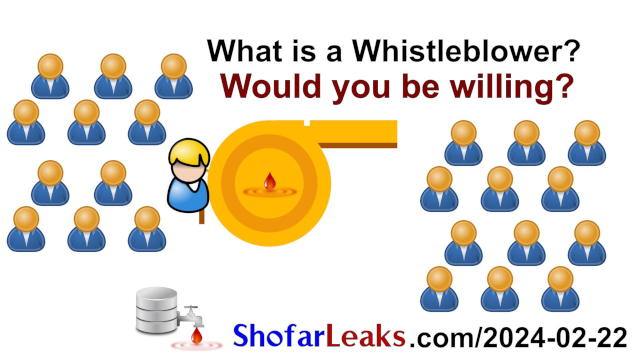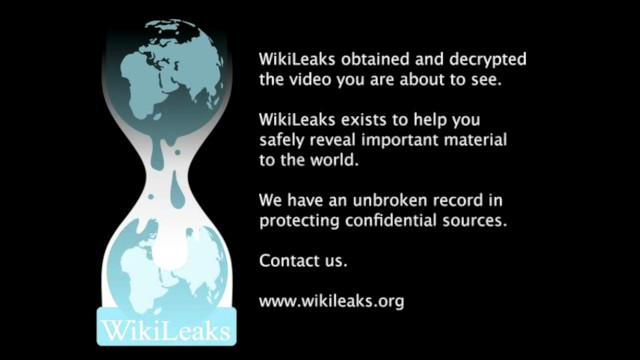|
|||||||
|
|||||||
A whistleblower is someone who discloses a violation of ethics, major or minor, publicly or privately. The issue could be somewhat nebulous in that it addresses policy or methodology, or specific, such as where evidence can be presented perhaps in the form of documents, images, video, or electronic data. Consider an example of a group of a dozen people. One person has information about an ethical issue within the group. Options to consider are to address the issue with the group individually or collectively, to bring the issue to the leadership of the group, outside authorities, or the press; or simply to ignore it. The issue may have to do with finances or safety, or it may be illicit, socially unacceptable, or simply an unkind act. The potential whistleblower should consider the cost balance of exposing or ignoring the issue. Even more—are there personal ethical considerations for the whistleblower in exposing the issue, such as contractual or legal obligations or obedience to God? The costs to the whistleblower can range from snide remarks or a general disfavor from the group to loss of income, persecution, abandonment, torture, prison, or death. Perhaps our example group of 12 people are coworkers whose income levels are above average. One realizes how to make the group more efficient such that only half of the people are required. If the concept is expressed to the group, what would the general attitude be? How many would be considering if they are part of the half that would be unemployed? How many would rather maintain the inefficiency to keep the collective’s income? Who would be an ally to the party making the suggestion? If there is a next level of management, would they prefer leading a group of 12 rather than a group of 6, as that may impact their income level, prestige, or future advancement? If the group is in a noncompetitive environment, such as government, a regulated corporation, a monopoly, or a defense contractor, inefficiency might be considered an asset. Larger salaries in a controlled environment will help keep those with the required skillset from uncontrolled environments or entrepreneurship. Protecting the whistleblower Especially in the case where specific evidence is available, if the issue is leaked internally or externally by an anonymous source, there will be questions of who the source is. There may be an internal inquisition to find the source. This may build mutual distrust within the group with various ramifications depending on the nature of the group. There are numerous options to protect the whistleblower, such as anonymity. This can include a simple technique of copying documents and media and distributing the copies rather than the originals. Consideration has to be taken if the duplication process adds identifying information to the copy, such as timestamps, serial numbers, or the location where the copy was made. When the risk to the whistleblower is high, or the issues significant, additional measures can be taken. For example acquiring a burner phone that would be used to take photos of documents, or pictures of a screen showing the documents, photos, or video. This separates most or all of the tracking from the source, but it must be considered if location information is on the phone, or records exist of how the phone was acquired. The phone could then be passed as is to an interested party, such as the press, which would duplicate and distribute the data. The leaked information could be withheld and one or more parties informed it exists and will be distributed unless certain conditions are met. The information would be protected by a dead-man-switch that would distribute the data to various parties under given conditions. While this can be used to reduce or stop an unethical behavior or protect a party at risk, it is also a technique that can be used maliciously. It is the handgun analogy: it can be used to protect the innocent or in a criminal act. Protecting the whistleblower from himself A common issue before, during, and after a whistleblowing event is mistakes on the part of the whistleblower. Pressure and emotions may vastly increase the error rate of the whistleblower in areas unrelated to the issue. This could impact family, friends, health, and freedom. There is no formula to help in this, but an ally can be invaluable. A patient and steadfast friend is required. Mutual trust is needed to allow both encouragement and challenges. It is not hard to find a whistleblower who rightly exposes issue ‘A’ and then wrongly addresses issue ‘B’, which may cost the loss of allies on issue ‘A’ and lead to some degree of self-harm to, or demise of the whistleblower. Seeking reconciliation Many of the techniques used to leak the issue the whistleblower addresses can be used to open the door with one or more of the group to reconcile relationships. The whistleblower could reach out to some or all of the group individually via anonymous methods to establish a dialog. If a comfort level is achieved, identities or direct communications can follow. An individual in the group could also be the initiator of this. This may only lead to an anonymous reconciliation with one, but that can be invaluable to the whistleblower, especially to protect the whistleblower from himself. It could also be the foundation of reconciliation with others or all of the group. It may also allow for the original issue to be openly addressed and perhaps resolved. Accepting minor issues builds a culture that accepts major ones Addressing issues while small is extremely important. If the group is stealing one penny candy each day, it may seem too trivial to address, but it is theft. Once theft becomes an accepted part of the culture of the group, larger monetary theft can creep in. When each member of the group sees a significant benefit in their paycheck, it becomes hard to question the ethics of the group as the impact is personal. When the benefits to the group, monetary or pride (tangible or intangible), becomes ingrained within the group, dead bodies in the streets will be overlooked. The world stage or the local community While some events make the world stage, most events impact only a local community. The risk level for a whistleblower is the same in both cases. It takes wisdom to count the cost and a strength of character to take on the role of a whistleblower. Allies can be extremely helpful, but it is likely it will be a lone effort. Consideration must be taken if the motivation is simply pride or revenge, as either might return a very high cost to the whistleblower. Rightly exposing what is wrong, especially when others are paying the price, can be an act of love. The price may be money, health, freedom, or life itself. The higher the cost, the higher the risk to the whistleblower. Would you be willing? When the issue is not something you hear others addressing, but is in front of you, what will you do? Are you willing to engage in a thoughtful review of the issue before you? Will you do the self-examination of your own motives to hide or expose the issue? Are you willing to give thought to the issue to make a wise decision on your course? Are you checking yourself for pride or lust for the things of this world? Is love of others a factor? Is the issue something that causes loss or harm to others? Can you wisely examine the balance of the risk to you? When you look in the mirror, do you see someone with wisdom and courage, or a cowardly fool? If an issue is before you, and a rational wise review indicates you are the one to expose the issue, would you be willing? |
|||||||
 |
|||||||
|
|
||||



